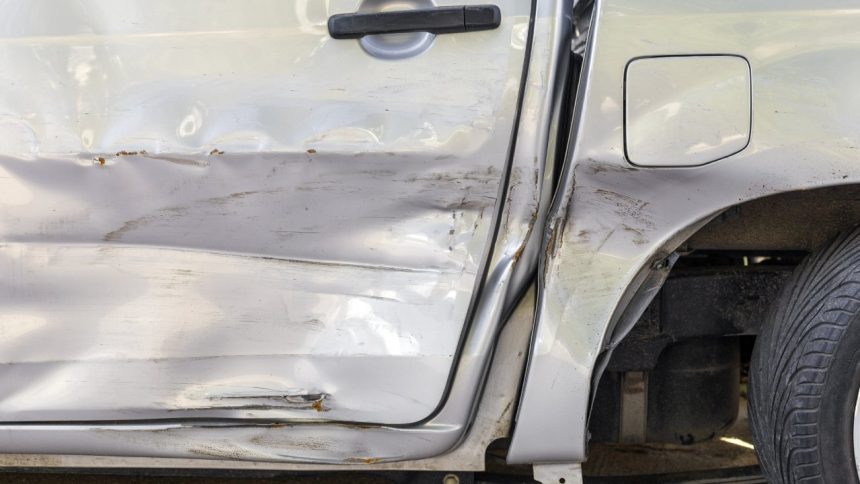Key takeaways
- Staying at the scene, assisting those who are injured and documenting the accident are some of the steps you should take following a hit-and-run in Oregon.
- Oregon has some of the most severe consequences for hit-and-run convictions in the country, including substantial fines and lengthy jail sentences.
- You will likely need more than state-mandated minimum car insurance in Oregon to protect you and your assets against hit-and-runs.
Hit-and-runs often happen so fast or unexpectedly that you find yourself scrambling to figure out what to do next. Hopefully you’re reading this proactively and not in the midst of an active hit-and-run situation in Oregon, but crafting the right car insurance policy and following proper procedures at the accident scene can help ensure you avoid legal complications and get your insurance claim approved. Bankrate’s team of insurance experts walks you through everything you need to know.
Hit-and-runs in Oregon
A hit-and-run in Oregon can be characterized as any accident where one of the involved drivers leaves the scene without stopping. While hit-and-runs vary case by case, they often occur for one of two reasons.
One being that the fleeing driver is operating the vehicle without proper insurance, meaning they are trying to avoid financial and legal responsibility for the accident. The other potential reason is the driver is fleeing out of sheer panic. While this is a little more understandable given the stressful situation, it’s still considered a hit-and-run.
If you find yourself facing a hit-and-run — whether you are the victim or you caused the accident and fled — knowing how Oregon hit-and-run laws work can go a long way when handling the situation with the authorities and your insurance provider.
Oregon hit-and-run laws
As outlined in Oregon laws, here are some common scenarios where knowledge about hit-and-runs should come in handy:
- Stop: Oregon hit-and-run law requires all involved drivers to stop and stay at the scene of the accident (although they should move their vehicles out of the flow of traffic). If you fail to do so and are convicted of a hit-and-run, your driving privileges may be suspended or revoked.
- Help injured parties: At the scene of the accident, you generally should check on yourself and everyone else. You are required by law to do what you can to help anyone who is injured, including calling 911 for emergency medical care. If anyone is unconscious or killed, everyone involved is legally required to stay at the scene until the police arrive or they could be charged with a hit-and-run.
- Exchange information: If you were the one to cause property damage to an unattended vehicle or other physical object, it is your legal obligation to locate the owner to exchange information. If you’re unable to locate the owner, you must leave a note with your name, address and a statement about the circumstances of the collision.
- Report the accident: If more than $2,500 in damage is caused to your vehicle, other vehicles or property, Oregon law requires you to report the incident to the DMV within 72 hours. Calling the police is also generally a good idea in any hit-and-run incident to help verify the information for your report.
Failure to fulfill your legal obligations in any of these scenarios can result in substantial fines and even time behind bars. Here are the potential ramifications for different types of hit-and-runs in Oregon:
- A hit-and-run in Oregon with no injury that causes damage to only property is a Class A misdemeanor that is punishable by a maximum fine of $5,000 and up to one year in jail.
- A hit-and-run in Oregon that causes personal injuries is a Class C felony that is punishable by a maximum fine of $125,000 and up to five years in jail.
- A hit-and-run in Oregon that causes serious injury or death is a Class B felony that is punishable by a maximum fine of $250,000 and up to 10 years in jail.
How hit-and-runs impact car insurance rates in Oregon
If you are convicted of a hit-and-run in Oregon, your insurance policy could be affected. Car insurance companies will likely see you as a high-risk driver and may increase your premium significantly. In some cases, your coverage may be dropped and you would need to search for a new car insurance provider.
If your insurance company decides to continue your coverage, you will most likely need an SR-22 form. This is a form that your car insurance provider files with the DMV on your behalf that proves that you carry at least the state-required insurance minimums. Typically, SR-22s must be on file for three to five years.
Even as the victim of a hit-and-run, you may see a slight hike in your car insurance premium. Any time you file a claim, insurance providers reevaluate your risk of filing future claims. So, for example, if a hit-and-run incident happened while your car was parked on the busy street in front of your house, your insurance provider may raise your premium to compensate for this newly realized risk.
5 things to do after a hit-and-run in Oregon
If you find yourself the victim of a hit-and-run, what to do in Oregon looks virtually identical to what you could do in other states. You may want to:
- Stay at the scene: You might be tempted to chase after the fleeing driver, but most law enforcement agencies advise against this for your safety. You should probably stay put, but try to take note of the license plate number and other defining features of the at-fault car or driver as they flee the scene.
- Keep everyone safe: Your first priority should be getting yourself and anyone else involved, as well as your vehicles, out of the flow of traffic. That said, if someone is badly injured, the Oregon Department of Transportation advises against moving them. In that case, you should likely call 911 as quickly as possible.
- Call the police: If you’re involved in a hit-and-run in Oregon with no injury or medical assistance needed, you may still want to call the police. This allows an officer to be dispatched to the scene of the accident. The responding officer will likely gather evidence from you and other eyewitnesses to assist in the search for the hit-and-run driver.
- Collect information: It may take time for an officer to reach the scene of the accident. While you wait, try to take pictures and make note of any details you can remember, including the other driver’s license plate number, the make and model of their vehicle and anything else that stands out to you. Speaking with witnesses from the scene of the accident might help you gather this information as well.
- Start your insurance claim: You can usually file a claim by calling your insurance provider or using tools on the company’s website or app. The sooner you start your claim, the faster you can be on the road to recovery.
Will insurance cover a hit-and-run?
It might. There are several car insurance coverages in Oregon that could come into play after a hit-and-run, some required by state law and others optional:
- Liability insurance: The first line of defense in hit-and-run Oregon insurance is the at-fault driver’s liability coverage, assuming they can be tracked down. Under Oregon law, drivers are required to have both bodily injury liability insurance, which, when the other party is at fault, is designed to pay for injuries you and your passengers sustain, and property damage liability insurance, which pays to repair or replace your vehicle and other damaged property, up to the at-fault driver’s policy limits.
- Uninsured motorist coverage: If the at-fault driver from the hit-and-run can’t be tracked down and you can’t get compensation from their liability coverage, you may be able to use uninsured motorist coverage to file your claim. However, it’s important to note that Oregon divides uninsured motorist coverage into two categories. Uninsured motorist bodily injury coverage, which protects you and your passengers, is required by law, while uninsured motorist property damage coverage, which protects your vehicle, is optional. You may want to consider purchasing both to fully protect yourself.
- Personal injury protection (PIP): Oregon also requires that all drivers carry PIP coverage, which is designed to pay for injuries, lost wages and other expenses for you and your passengers, regardless of who is at fault.
- Collision: If you have full coverage car insurance with collision coverage, this optional coverage could also help you pay for damage to your vehicle. You may have to pay a deductible, but some companies waive deductibles for hit-and-run scenarios.
It’s also important to mention that raising your coverage limits on these car insurance coverage types might give you broader financial protection in the event of a hit-and-run.
Frequently asked questions
Read the full article here















